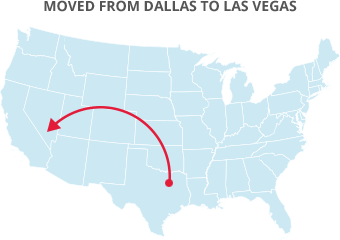
You’ve got a business to maintain. And now you‘ve got to maintain it while you’re moving it from one location to another! How do you keep your Atlanta business growing and the profits flowing while your furniture’s going out the door? That’s the “million dollar” question of office relocation! Give it a wrong answer, and your productivity and profits will go out the door with the furniture.
At A-1 Freeman Moving Group, we’ve got a right answer for you – one that’s predicated on helping you stay clear of 8 blunders that we, as
office relocation specialists, find all too often made:
- Not Planning Ahead. As soon as you realize you’ve got to move, that’s when you should start planning for it. Unfortunately, too many businesses begin their office relocation planning a little too late. Too late for what, you ask? Well, too late for moving companies and other providers to put together a reasonable proposal for you, let alone properly deliver the goods and services you purchase from them. Keep in mind: too little time frequently opens the door for too many mistakes. Let the size of your company and the complexity of your move – i.e., the number of steps that must be completed before other steps can be started – guide you in figuring out how soon is soon enough.
- Not Investigating Your Mover Thoroughly. Office relocations are demanding. You need a moving company that’s smart enough to take care of office furniture and modular systems, computer systems and networking, office equipment, machinery, and hardware, cabling, phone systems, security systems, building permits, and ... that’s just for starters, make sure they’re legitimate. Check https://ai.fmcsa.dot.gove/hhg/search.asp to see, first of all, that they’re U.S. Department of Transportation (DOT) licensed and insured, particularly for interstate commerce. Check the reviews at bbb.org. to discover if any complaints have been lodged against them with the Better Business Bureau. And, if you can, talk with other companies who’ve employed them to find out how well they lived up to their contractual promises. It’s also worth your while to ask about their moving crews – whether they’re full-time employees or temps, whether they’ve been background checked and drug tested, and whether they follow standard chain-of-custody procedures.
- Not Coordinating and Communicating Sufficiently with Your Mover. Your office relocation manager must work with the project manager your moving company has alloted to see that your internal team and the moving company’s team are tracking together. Any [[changes in the schedule have to be properly communicated to all those involved, lest one upset create others and cause all kinds of gaffes and cost overruns.
 Not Assigning Enough Internal Staff to Your Move. The complexity of any office relocation practically demands that you recruit the help of personnel from within your company. Choose people in each department who understand their department’s needs fully and have access to applicable company records. That may not necessarily be the department head! In truth, you’re often better off seeking the help of experienced but non-managerial staffers, as they’ll tend to follow your relocation manager’s direction without argument.
Not Assigning Enough Internal Staff to Your Move. The complexity of any office relocation practically demands that you recruit the help of personnel from within your company. Choose people in each department who understand their department’s needs fully and have access to applicable company records. That may not necessarily be the department head! In truth, you’re often better off seeking the help of experienced but non-managerial staffers, as they’ll tend to follow your relocation manager’s direction without argument.- Not Following the Schedule. It’s seldom the case that an office relocation schedule slackens. Certainly, various stages can be held hostage for this or that reason. But what usually happens then is that the schedule gets tightened. And that usually happens because the planning got off to a late start. And what happens when you try to compensate for lost time? More people from your team and the mover’s team are given more overtime hours. Everybody starts getting in the way of everybody else. Things get messy. Mistakes are made. And who pays for all this? Yep. Better to devise a rational schedule from the get-go and stick to it.
- Not Budgeting Adequately for Your Move. Frankly, it’s tough for any company that hasn’t experienced a relocation before to know just what its move will end up costing. To leave that cost to chance, though, or to budget for it incompletely is a big gaffe! Typically, you must figure in recurring real-estate costs, soft-dollar expenses for, say, employee relocation and training, capital expenses including new furniture and office equipment purchases, moving expenses, and consulting expenses for such things perhaps as interior design and engineering. The more of your likely expenditures you [[plan|[provision]175] for at the start, the more controllable the expense of your office relocation will be.
- Not Having the Right Amount of Coverage. If you’ve picked a professional relocation company of any renown, the risk of property damage is slight. Still, you be prepared. Talk with your mover about the coverage options they offer and select the most useful for your operations.
- Not Thinking to Back Up Your Data. There’s no point in recounting horror stories here. Suffice it to say that during your office relocation, your firm’s material records should be backed up digitally, whenever feasible. Those that can’t be digitized ought to be deposited safely in a warehouse. And your digital data ought to be backed up in the cloud. Historically, losing such data or suffering its damage isn’t an “everyday” phenomenon. But do you really want to risk it? Then, by all means, back it up!
A big way to bypass these sorts of mistakes – or to compensate for them effectively – is to go with a moving company that has a verifiable track record of successful office relocations. May we propose A-1 Freeman Moving Group right here in Atlanta? Check us out as we suggest above. Then review our
office relocation services and ...
Request a free quote



 You’ve got a business to maintain. And now you‘ve got to maintain it while you’re moving it from one location to another! How do you keep your Atlanta business growing and the profits flowing while your furniture’s going out the door? That’s the “million dollar” question of office relocation! Give it a wrong answer, and your productivity and profits will go out the door with the furniture.
You’ve got a business to maintain. And now you‘ve got to maintain it while you’re moving it from one location to another! How do you keep your Atlanta business growing and the profits flowing while your furniture’s going out the door? That’s the “million dollar” question of office relocation! Give it a wrong answer, and your productivity and profits will go out the door with the furniture. Not Assigning Enough Internal Staff to Your Move. The complexity of any office relocation practically demands that you recruit the help of personnel from within your company. Choose people in each department who understand their department’s needs fully and have access to applicable company records. That may not necessarily be the department head! In truth, you’re often better off seeking the help of experienced but non-managerial staffers, as they’ll tend to follow your relocation manager’s direction without argument.
Not Assigning Enough Internal Staff to Your Move. The complexity of any office relocation practically demands that you recruit the help of personnel from within your company. Choose people in each department who understand their department’s needs fully and have access to applicable company records. That may not necessarily be the department head! In truth, you’re often better off seeking the help of experienced but non-managerial staffers, as they’ll tend to follow your relocation manager’s direction without argument.